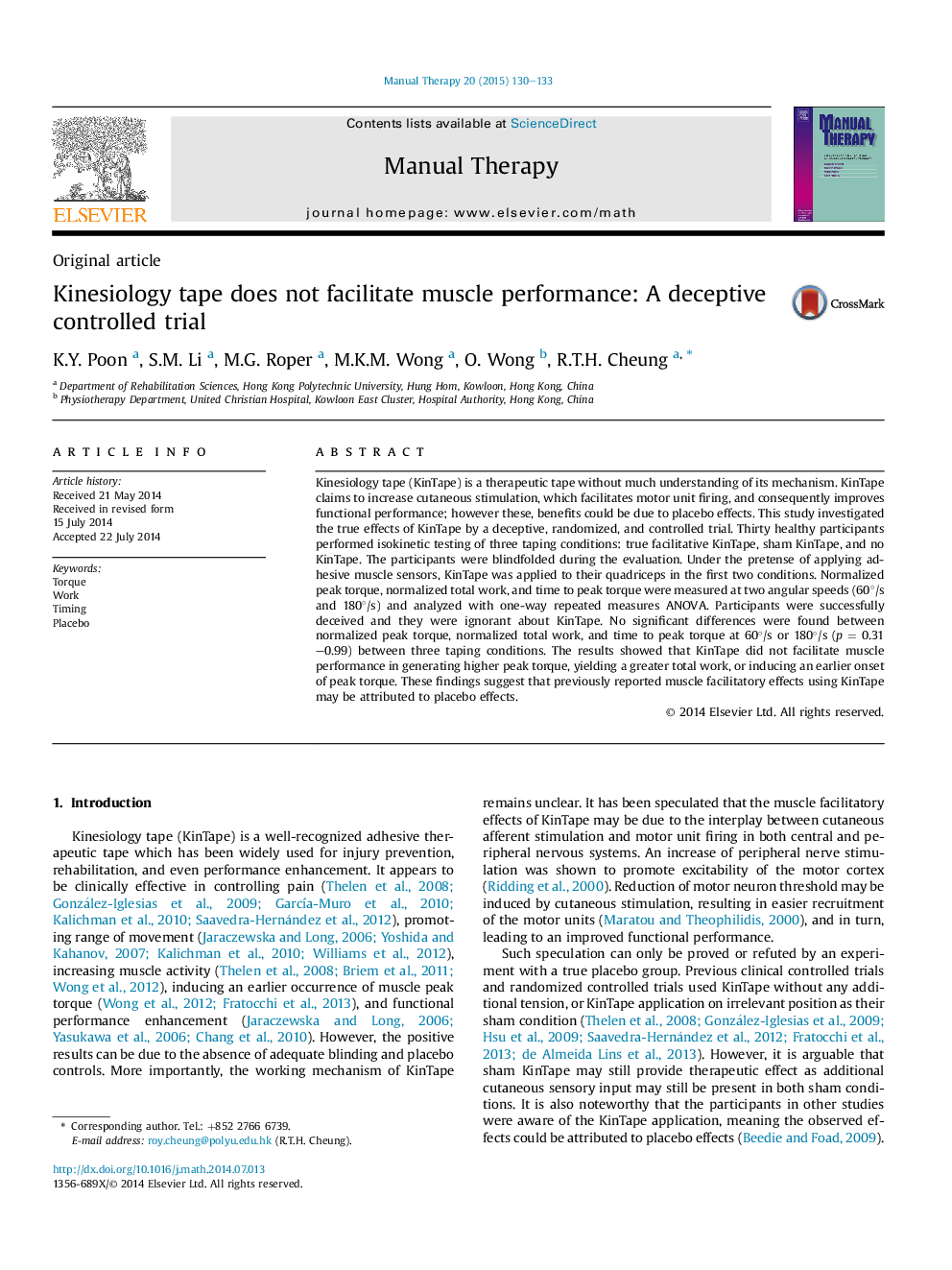| Article ID | Journal | Published Year | Pages | File Type |
|---|---|---|---|---|
| 2625077 | Manual Therapy | 2015 | 4 Pages |
Kinesiology tape (KinTape) is a therapeutic tape without much understanding of its mechanism. KinTape claims to increase cutaneous stimulation, which facilitates motor unit firing, and consequently improves functional performance; however these, benefits could be due to placebo effects. This study investigated the true effects of KinTape by a deceptive, randomized, and controlled trial. Thirty healthy participants performed isokinetic testing of three taping conditions: true facilitative KinTape, sham KinTape, and no KinTape. The participants were blindfolded during the evaluation. Under the pretense of applying adhesive muscle sensors, KinTape was applied to their quadriceps in the first two conditions. Normalized peak torque, normalized total work, and time to peak torque were measured at two angular speeds (60°/s and 180°/s) and analyzed with one-way repeated measures ANOVA. Participants were successfully deceived and they were ignorant about KinTape. No significant differences were found between normalized peak torque, normalized total work, and time to peak torque at 60°/s or 180°/s (p = 0.31–0.99) between three taping conditions. The results showed that KinTape did not facilitate muscle performance in generating higher peak torque, yielding a greater total work, or inducing an earlier onset of peak torque. These findings suggest that previously reported muscle facilitatory effects using KinTape may be attributed to placebo effects.
